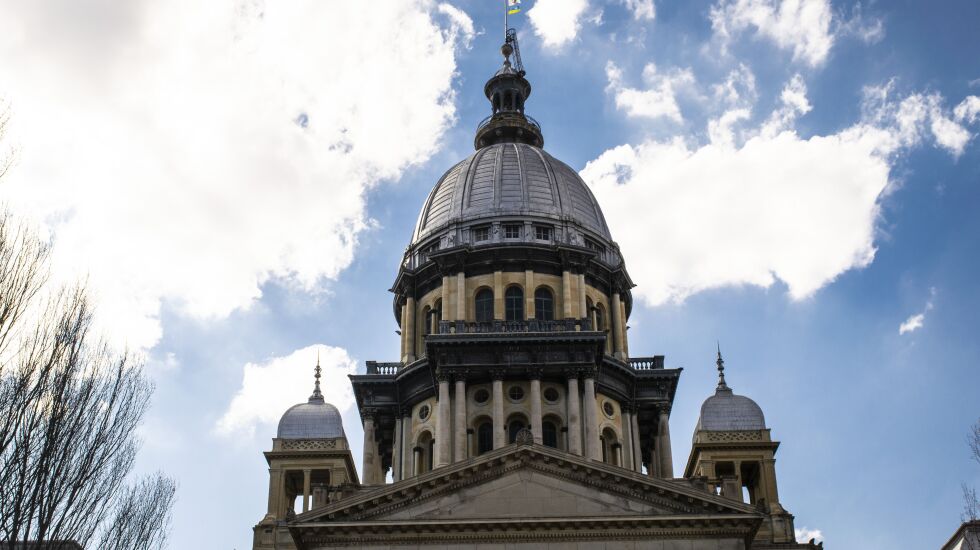
Illinois lawmakers have shown fiscal discipline lately, but politically toxic tax increases must be considered to fully fund pensions and improve the state’s credit rating, senior business leaders in Chicago said in a report Wednesday.
The report by the Civic Committee of the Commercial Club of Chicago said it could support income tax “surcharges” for people and companies, lasting 10 years, provided the additional revenue is earmarked mostly for pensions.
It was a notable message from a group that opposed Gov. J.B. Pritzker’s plan for a graduated income tax, with higher rates for higher incomes.
The Civic Committee cited Illinois’ history of “fiscal mismanagement” in opposing the plan in 2020. But the finances have improved, and the business leaders can now back higher taxes if there are “lockbox” protections for the money, said Derek Douglas, president of the Civic Committee.
Pritzker’s graduated income tax was voted down in a referendum.
Among other moves to be considered is a broadening of state sales taxes to cover more services, expanding the income tax to include retirees’ earnings and forcing members of state retirement systems to pay more for health care, the Civic Committee said.
The proposals all would raise enormous opposition. But the report said the ideas should be on the table if Illinois is to end structural deficits. It said Illinois should try to achieve a coveted AA bond rating in five years, something 80% of states have. Illinois’ BBB+ rating is the lowest among the states, despite recent upgrades.
“There are options that are put in there that are tough choices, but they are motivated by a need to deal with the pension situation we have,” Douglas said.
Douglas said his group has discussed alternatives with Democrats and Republicans in Springfield but has no commitments to sponsor legislation. “Our sense is that to do anything, it’s going to require a bipartisan approach,” he said.
Accelerating pension funding would save the state $37 billion over the next 22 years and bring the retirement plans to 100% funding levels, rather than the current target of 90%, said the report, called “Securing Illinois’ Future: Stabilizing State Finances to Promote Long-Term Growth.”
It suggested a surcharge of 0.5% on the personal income tax, currently a flat 4.95% in Illinois. Similarly, corporate income taxes of 9.5% could sustain a surcharge of 0.7%, the group said.
It said that aside from pensions, the revenue would support a buildup of the state’s Rainy Day Reserve Fund to $6 billion from the current $2 billion in five years.
Jay Henderson, retired vice chairman of PricewaterhouseCoopers and an author of the report, said any suggested tax increases shouldn’t do much harm to the state’s competitiveness. He noted that Illinois’ flat income tax rate compares favorably with the rates in most other states.
Regarding pensions, Henderson said, “Illinois is the only state in the country that has a targeted funding level of 90%. Every other state has a targeted level of 100%.”
Illinois is one of three states that charges income tax but excludes retirement income. Ending the exclusion for people with $100,000 or more in retirement income could net $1.8 billion a year, the report said.
A retirement tax has long been a “third rail” for politicians to avoid, and other ideas in the report have never gained traction. But Kent Redfield, professor emeritus of political science at the University of Illinois Springfield, said the report raises a host of issues for discussion.
“Nothing will be done this year or next year, but longterm there has got to be a reckoning with pensions,” he said. Redfield said that if Democrats maintain supermajority control of the Legislature and the governor’s office, leaders may gradually take up structural budget reforms.
Illinois’ mandated pension payments are due to rise steadily through 2045 and already account for about 21% of expenditures in the state’s General Fund, taking money that could be available for education or other needs, the Civic Committee said.







